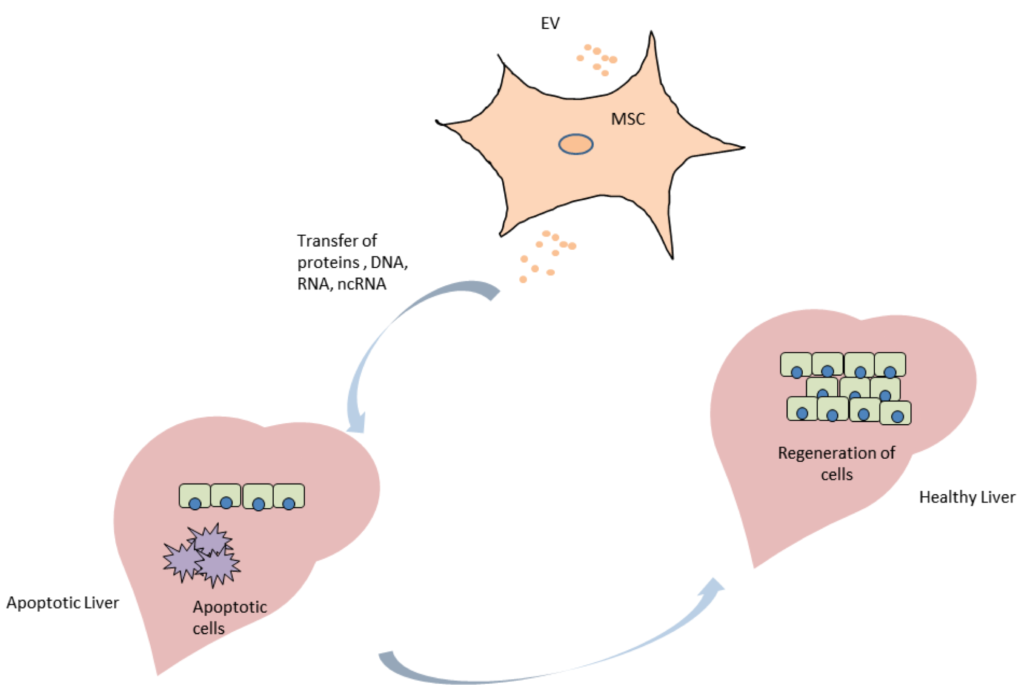06.01.17 last updated.
06.01.17 last updated.
Acute liver failure is a potentially fatal consequence of severe liver injury. Liver transplantation may be necessary for survival if the liver injury exceeds the ability of the liver to regenerate (also called fulminant liver failure). New therapeutic interventions are needed to enhance tissue regeneration and improve the outcome of acute or fulminant liver failure. Previous studies have reported that mesenchymal stem cell (MSC) transfusions can improve function in liver facing acute failure. Stem cells can grow into multiple cell types and may support the replacement of functional liver tissue. In addition, paracrine effects — signalling between nearby cells — resulting from the release of soluble factors and extracellular vesicles (EV) may contribute to some of the beneficial effects observed with stem cell therapies.
A new study by Haga et al. reports on the beneficial effects of EV derived from stem cells. EV were isolated using classical ultracentrifugation methods. To mimic liver injury, D-galactosamine and recombinant tumor necrosis factor-α were injected into male mice. Subsequently, systemic administration of EV was shown to result in a dramatic improvement in survival. Whereas control animals receiving placebo showed complete lethality within 12 hours of D-galactosamine/TNF-α injection, the mice injected with mouse stem-cell-derived EV had a 57% survival at 24 hrs. When human MSC-EV were administered, a 37.5% survival was noted. Also noteworthy, survival was observed even with EV that had been cryopreserved. The EV reduced hepatic inflammation, likely by protecting the hepatocytes from apoptosis and recruiting Kupffer cells that protect from liver injury. The figure shows an overview of this process. Some of the beneficial effects were shown to be mediated by Y-RNA-1, a long non-coding RNA that is enriched within MSC-EV.

Stem-cell-derived extracellular vesicles repair tissue after acute liver failure
The beneficial effects of stem cells, mediated through EV and their RNA content, in severe injury models provides new avenues for investigation of the pathophysiology of liver injury and inflammation. These observations provide a very compelling justification for the future use of MSC-EV as therapeutics for severe liver injury.
Reference:
Extracellular vesicles from bone marrow-derived mesenchymal stem cells improve survival from lethal hepatic failure in mice. Haga H, Yan IK, Takahashi K, Matsuda A, Patel T. Stem Cells Transl Med. (2017) 6:1262-1272. doi: 10.1002/sctm.16-0226.
MVP-mediated exosomal sorting of miR-193a promotes colon cancer progression
Toxicity and immunogenicity of engineered EVs in animal models
There are no comments.